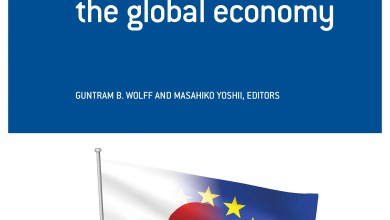- After soaring in the 1970s, inflation in Organisation of Economic Cooperation and Development countries stabilised, coming down from 9 percent on average in the early 1980s to about 2 percent in the years before the crisis, and to a lower level in recent years.
- This trend coincided with the acceleration of globalisation, triggering a debate about whether global integration (of goods, labour and financial markets) could be one of the main drivers of the disinflation process and whether central banks’ ability to control inflation could be weaker as a result.
- We explore the different ways in which globalisation could have an impact on inflation and monetary policy transmission channels. We conclude that inflation dynamics can be affected by globalisation and that central banks should take external factors into account in their decision-making processes and in their economic models. Even if the transmission mechanisms are affected by globalisation and in particular by financial integration, ultimately, central banks retain their ability to control medium-term inflation, as long as they adopt flexible exchange rates.
The full paper is available for download here (pdf).

